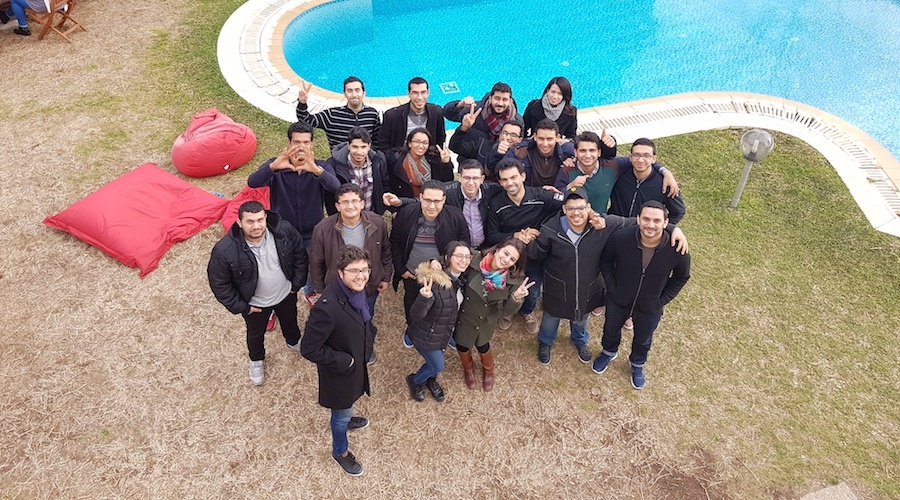How Expensya built a business on partnerships

Expensya founder Karim Jouini said his success came down to good partnerships.
“The number one reason to have partners is that they help you build a reputation when you start in a market. They basically help you build yourself, and allow you to share their reach,” he said.
Jouini wanted partnerships that would validate Expensya as a business, as well as provide a network and channels through which he could sell his automated expense reports.
Getting those partnerships is never easy, but they are necessary for small businesses wanting big deals. It was something Jouini realised when he was kicked out of a bid round for Natixis in London-Frankfurt and Dubai. The firm had asked ‘what do I do if you go out of business?’
“This was an excellent lesson on why you need partnerships in the first place. You need them to be validated in front of big clients, to build your reputation,” he said, during a talk at Startup Haus in Tunis last week.

Finding partners
In the beginning, Jouini knocked on every door to find a partner.
He started with a Google search. He found a big telco operator that he was interested in, then he met them at a trade show and managed to introduced himself and his startup through his network. He wanted his new partner to sell Expensya to their clients, but this kind of partnership needs time, especially when your partner has less interest in you than you have in him.
“I have a Google alert with [the name of the telco partner] and the key word ‘trade show’ and whenever I know they go to a trade show, I ask them if I can go with them. Ninety percent of the time they would say “f*** off” and 10 percent of the time they would say “come along” and save me the money of a booth,” Jouini said.
To keep this big partner, Jouini made it a win-win situation. “We can’t have another partner who is a telco company in Europe and they can’t have a partnership with another expense system,” he explained.
“You have to always be proactive about this and always find something they don’t have that you can give them, study your partners hard.”
Not zero sum
Corporate partnerships are not a zero-sum game, a situation where one side wins and the other loses.
“Unfortunately, I think we have this culture in Tunisia, and business is the total opposite. You can both grow and get competitive advantages for this,” he said, adding that a zero sum mentality couldn’t work for startups - you’re too small to win.
“My competitors are helping me because they teach me to challenge myself. They also know the market and they train you and help you go succeed.”
For instance, having a partnership with Alliance Biz Travel meant they co-market everything and share trade shows and fair costs.
“We organized a breakfast where each of us would bring ten of their best customers, this would enable us to network while costing us $100 instead of the $10,000 we would have spent, creating separate events or losing time to find the customers,” Jouini said.

Be persistent
Jouini has four people working full time on networking and partnerships, and spent more than a year to convince Viseo to move to Expensya.
“I checked the profile of Viseo’s CEO on Linkedin, a common friend introduced us allowing me to pitch my project. Of course he said that we were too expensive, so we worked for six months to make them a better offer. When your potential partner does not want to sell your product to their audience, you have to make them use the product.”
He also roped in competitors as partners.
He partnered with Quickbooks which is an accounting software to gain more visibility in front of Concur, its direct rival.
“Those guys are number one in our sector. They don’t need us as partners, but we can sell them the product and make them use it hoping that one day, they will think about us. Then, we will go from plan B to plan A,” Jouini said.
For Quickbooks, which is one of the top accounting software providers in the world and number one in the US and Canada, Jouini showed them how they might use Expensya. They had a small user base in France, where Expensya has 2,000 clients. The startup was able to bring them a more “local” image (as a French actor).
Even if some partnerships do not always bring you money and cost you more than it should, it is a long run process, according to Jouini, which enables you to validate your startup on an international level.


